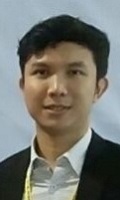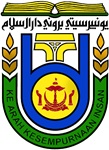published 01/02/2018
PhD Title: Establishment of in vitro blood brain barrier models for the study of dengue encephalitis
Supervisor(s): Dr Siti Hanna Muharram, Dr Suwarni Diah and Dr Zainun Zaini
About the PhD:
The project focuses on the development of an in vitro blood brain barrier model (BBB) to study the ability of dengue virus to invade the BBB to cause encephalitis. This project investigates the mechanisms of viral invasion and involvement of brain endothelial tight junction proteins in the modulation of BBB hyperpermeability during infection. This study also investigates the role of certain cytokines and chemokines produced in response to the infection to cause further leakage. In addition, receptors targeted by the virus on brain endothelial cells were identified, specifically carbohydrate-bearing receptors which may facilitate viral entry.

Email: 14h8154@ubd.edu.bn
Conferences & Meetings
- 2017 - 14th Annual Scientific Meeting INFECTION 2017, Hong Kong
- 2017 - 10th Malaysia Indonesia Brunei (MIB) Medical Sciences Conference, Malaysia
- 2017 - Commonwealth Science Conference, Singapore
- 2016 - 13th Annual Scientific Meeting INFECTION 2016, Hong Kong
- 2016 - 3rd PAN-ASIAN Biomedical Science Conference, Malaysia
- 2015 - 3rd International Neuroscience Symposium, Brunei
- 2015 - 9th Malaysia Indonesia Brunei (MIB) Medical Sciences Conference, Brunei
- 2011 - 7th Malaysia Indonesia Brunei (MIB) Medical Sciences Conference, Malaysia
- 2010 - Asian Forensic Sciences Network (AFSN) 2nd Annual Meetings and Symposium, Brunei
Qualifications
2013 - MSc Medical Microbiology, University of Manchester, United Kingdom
2012 - BHSc Biomedical Sciences, Universiti Brunei Darussalam, Brunei
Biography
Fakhriedzwan Idris received his bachelor's degree in Biomedical Sciences from Universiti Brunei Darussalam in 2012. During his undergraduate study, he underwent research training from local and overseas institutes (Otto-Meyerhof Zentrum, University of Heidelberg, and Krankenhaus Nordwest, Frannkfurt, Germany) in viral studies. He continued his master's degree in Medical Microbiology, specializing in bacteriology at the University of Manchester and graduated in 2013. During this time, he continued pursuing research in virology, particularly neurotropic viruses. He is currently pursuing his PhD degree focusing on neuroinfectious disease, in particular dengue encephalitis. His research interests also include host-pathogen relationship, viral glycosylation, as well as studying disease vector.
Publications
- Idris, F., Muharram, S. H., Diah, S. (2016) Glycosylation of dengue virus glycoproteins and their interactions with carbohydrate receptors: possible targets for antiviral therapy. Archives of Virology, vol. 161, no. 7, pp. 1751-1760.
- Meyding-Lamadé, U., Craemer, E., Lim, J., Kalsum, U., Abdul, H., Idris, F., Rahman, N., Diah, S., Muharram, H. (2015) Investigation of coagulation behavior using Rotational Thromboelastometry (ROTEM®) in patients with neuroinfectious diseases. Journal of the Neurological Sciences, vol. 357, e4-e6.
- Idris, F., Yates, C. (2015) Surface glycans alterations to astrocytes in response to herpes simplex virus type I infection. Brunei International Medical Journal, vol. 11, supp. 3, s15-s16.
- Meyding-Lamadé, E. M. Craemer, F. Idris, N. Ahmad, D. Durani, B. Bassa, C. Jacobi, C. Mohs, C. Chan, A. Masri, N. Yassin, B. Kress (2014) Telemedicine – Is tele-EEG, tele-Electrophysiology and telecytology possible – A feasibility study. EPNS European Journal of Neurology, vol. 21, supp. 1, pp. 413.
- Idris, F., Usman, A., Surendran, S. N., Ramasamy, R. (2013) Detection of Aedes albopictus pre-imaginal stages in brackish water habitats in Brunei Darussalam. Journal of Vector Ecology, vol. 38, no. 1, pp. 197-199.
- Craemer, E., Idris, F., Ahmad, N., Durani, D., Bassa, B., Jacobi, C., Jafaar, I., Kress, B., Meyding-Lamadé, U. (2013) Telemedicine – Is tele-EEG, tele-Electrophysiology and telecytology possible – A feasibility study. Journal of the Neurological Sciences, vol. 333, supp. 1, e664-e665.
